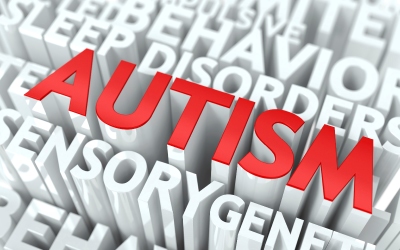Are We Equipped to Help Adults with Autism?
While autism is a health concern you usually associate with children and young people, the disorder is likely to continue to affect sufferers’ wellbeing right through into adulthood. This is according to a wealth of wellness experts and researchers in the field, who note that the US healthcare system isn’t equipped to deal with the rising numbers of adults with autism. They add, however, that some individuals with autism may be able to surpass their non-autistic counterparts at university and beyond.
According to the US Centres of Disease Control and Prevention (CDC) in the United States, it is estimated that one in every 88 children has an autism spectrum disorder. Autism researcher Paul Shattuck, from Washington University in St. Louis, notes that this means 45,000 to 50,000 kids with autism turn 18 each year. Dr. Joseph Cubells, director of medical and adult services at the Emory Autism Centre at Emory University in Atlanta, explains, ‘This is an impending health care or community care crisis. The services that are available vary from state to state, but often the resources just aren’t there.’
The National Alliance on Mental Illness states that, if you have an autism spectrum disorder, you are entitled to services from your public school until you reach the age of 22, at which point it is up to you and your family members to find educational or employment opportunities and appropriate living arrangements. However, wellness experts point out that the programmes for adults with autism are already thin on the ground, and this is likely to get worse as the increasing number of children who are being diagnosed with autism spectrum disorders grow into adults.
The problem with treating or helping people with an autism spectrum disorder is that the needs change from person to person. Cubells clarifies, ‘We say autism as if it’s a single thing, much like we say cancer, but, within the general category of things we call cancer are brain tumours, lung tumours, pancreatic tumours, and each requires different treatments. Autism is very individual. It varies from one extreme where someone needs custodial care for their entire life to the other extreme where someone is a highly functional, successful person who may be regarded as being a little quirky. There are some common themes, but there’s really nothing that applies to every single person.’
With regards to higher education, if you’re on the higher-functioning end of the spectrum you may still be able to go to university, albeit still facing certain challenges. ‘There’s often a substantial mismatch between verbal skills and performance skills,’ Cubells says. ‘You can be highly intelligent and able to do complex math and abstract reasoning, but you don’t know how to ask someone out for coffee. Having to make friends, schedule meals, and get to class without help can be like hitting a brick wall for a lot of people on the spectrum. I often tell people with Asperger’s that they have to learn in words what most people learn intuitively.’
However, colleges do often provide services such as peer mentorship programmes to help ease people with autism into college life. Moreover, Shattuck and his colleagues have recently found that people on the autism spectrum are more likely to choose a science, technology or mathematics degree than people without autism, and these types of careers may be just the ones where autistic individuals find the most success. Cubells explains, ‘People on the spectrum can focus on the details. In jobs that would be hideously boring and tedious to most of us, like jobs where you spend hours alone, having a social deficit can be a real strength.’

Comments are closed.